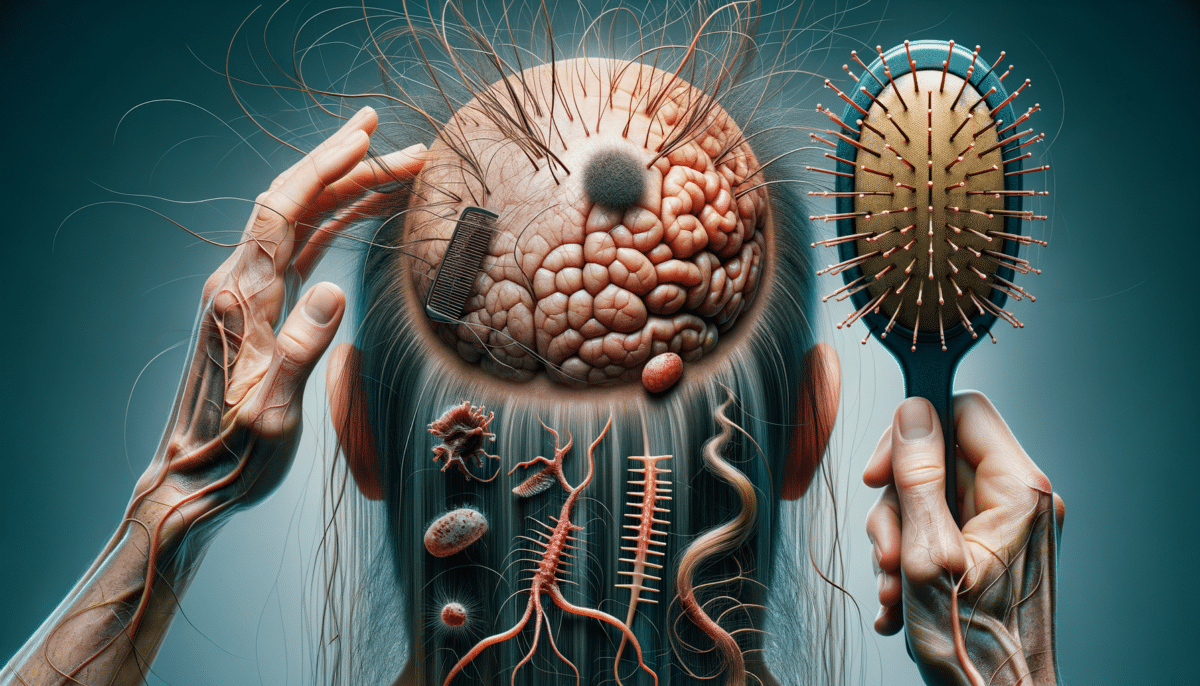Understanding Hair Loss: An Overview
Hair loss is a common concern affecting millions worldwide, transcending age, gender, and ethnicity. It can manifest in various forms, from thinning hair to complete baldness, and understanding its root causes is essential for effective management. Hair loss can be broadly categorized into several types, including androgenetic alopecia, alopecia areata, and telogen effluvium. Each type has distinct characteristics and underlying causes, ranging from genetic predispositions to autoimmune responses.
Androgenetic alopecia, often referred to as male or female pattern baldness, is the most prevalent form of hair loss. It is primarily hereditary and involves the gradual miniaturization of hair follicles, leading to thinner and shorter hair strands. In contrast, alopecia areata is an autoimmune condition where the immune system mistakenly attacks hair follicles, resulting in patchy hair loss. Telogen effluvium, on the other hand, is typically triggered by stress, illness, or hormonal changes, causing a temporary increase in hair shedding.
Understanding these different types of hair loss is crucial in identifying the appropriate treatment or management strategy. By recognizing the specific characteristics and triggers, individuals can seek targeted solutions, whether through medical intervention or lifestyle adjustments.
Causes and Risk Factors of Hair Loss
The causes of hair loss are multifaceted, often involving a complex interplay of genetic, hormonal, environmental, and lifestyle factors. Genetics plays a significant role, particularly in cases of androgenetic alopecia, where family history can be a strong indicator of susceptibility. Hormonal changes, such as those occurring during pregnancy, menopause, or thyroid imbalances, can also contribute to hair loss.
Environmental factors, including exposure to pollutants and harsh hair treatments, can weaken hair and exacerbate shedding. Additionally, lifestyle choices such as diet, stress levels, and hair care practices significantly impact hair health. Poor nutrition, particularly deficiencies in iron, zinc, and vitamins, can impair hair growth and lead to increased hair loss.
It is essential to identify these risk factors early to mitigate their effects. For example, adopting a balanced diet rich in essential nutrients, managing stress through mindfulness practices, and using gentle hair care products can all help maintain healthy hair. Understanding the underlying causes and risk factors empowers individuals to make informed decisions about their hair care routines and seek professional guidance when necessary.
Impact of Hair Loss on Individuals
Hair loss can have a profound impact on an individual’s self-esteem and emotional well-being. For many, hair is a significant aspect of their identity and appearance, and losing it can lead to feelings of inadequacy and self-consciousness. This emotional toll can affect various aspects of life, from personal relationships to professional interactions.
Studies have shown that individuals experiencing hair loss may face social stigma, leading to isolation and decreased quality of life. The psychological effects can be particularly pronounced in women, who often face societal pressures regarding appearance. Men, too, can experience significant distress, especially when hair loss occurs at a young age.
Addressing the emotional impact of hair loss is as important as treating the physical symptoms. Support groups, counseling, and open communication with loved ones can provide emotional relief and help individuals cope with the changes. By fostering a supportive environment, those affected by hair loss can build resilience and maintain a positive outlook despite the challenges they face.
Treatment Options for Hair Loss
There are various treatment options available for those experiencing hair loss, ranging from medical interventions to natural remedies. The choice of treatment often depends on the type and severity of hair loss, as well as individual preferences and health considerations.
Medical treatments include topical solutions, oral medications, and surgical procedures. Topical solutions, such as minoxidil, are widely used to stimulate hair growth and slow down hair loss. Oral medications, like finasteride, work by inhibiting hormones that contribute to hair follicle miniaturization. For more advanced cases, hair transplant surgery can offer a permanent solution by relocating hair follicles from one part of the scalp to another.
In addition to medical treatments, natural remedies and lifestyle changes can support hair health. These include using essential oils, maintaining a nutritious diet, and practicing stress-reducing techniques like yoga and meditation. It is important to consult with healthcare professionals to determine the most suitable treatment plan, as individual responses to treatments can vary significantly.
Preventive Measures and Hair Care Tips
Prevention is a key aspect of managing hair loss, and adopting healthy hair care practices can go a long way in preserving hair density and strength. Regularly washing hair with mild shampoos and conditioners helps maintain scalp health and prevent build-up of oils and dirt that can clog hair follicles.
Avoiding excessive heat styling, chemical treatments, and tight hairstyles can minimize damage and reduce the risk of hair breakage. Instead, opting for gentle styling techniques and using protective products can enhance hair resilience.
Incorporating a diet rich in proteins, vitamins, and minerals supports hair growth and overall health. Foods high in omega-3 fatty acids, such as salmon and walnuts, along with leafy greens and fruits, provide essential nutrients that nourish hair from within.
Lastly, staying hydrated and managing stress through regular exercise and relaxation techniques can improve both hair and scalp health. By implementing these preventive measures, individuals can maintain healthier hair and potentially slow down the progression of hair loss.
